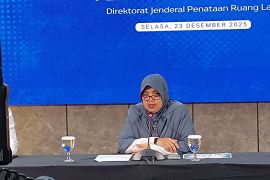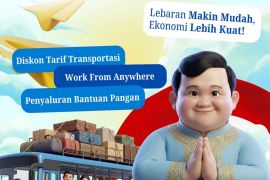"The draft document of macro-economic and fiscal policies 2015 is an explanation of directions and strategies for the government to respond to the dynamic economy and meet the challenges of strategic issues," remarked Minister Chatib during a plenary meeting with the House of Representatives here on Tuesday.
Chatib explained that the global economic growth in the period between 2014 and 2015 was forecast to improve and be higher than 2013, but several ongoing challenges and risks hampered the growth, such as the sluggish economic growth in China, the risk of global liquidity shock as the effect of tapering off in 2014, the Feds plan to hike the interest rate in 2015, and the start of the ASEAN Economic Community (AEC) in 2015.
With regard to domestic challenges, Indonesia faces some major issues related to the governments support in infrastructure, energy source, and the short-term effects of raw mineral export ban as an effort of down-streaming policies, income disparity, and fiscal stability.
"In general, the economic growth had slowed down from 5.8 percent in 2013 to 5.5 percent in 2014. The slowdown was majorly caused by export performance, sluggish credit for business, high interest rate, low prices of international commodities, and the short-term effects of the raw mineral export ban," Chatib noted.
With regard to various factors related to global and domestic economic development, the government proposed a list of assumptions of the macro-economic base in 2015 to grow at range between 5.5 and 6.0 percent, the inflation flow between 3.0 and 5.0 percent, and exchange rate between Rp11.5 thousand and Rp12 thousand per U.S. dollar.
The three-month treasury bill (SPN) is 6.0 percent to 6.5 percent, Indonesian Crude Price (ICP) reached US$95 to US$110 per barrel, oil lifting reached 0.9 million to 0.92 million barrels per day, and gas lifting is 1.2 million to 1.25 million barrels of oil equivalent per day.
According to Chatib, despite the presence of dynamic macro-economic indicators, the government is committed towards accelerating the achievement of the national development target by optimizing the available sources.
"Thus, the draft of fiscal policies was created by considering the balance of public services fulfillment, the anticipation of economic dynamics, and the acceleration of the national target achievement as well as the efforts to increase social protection," he reiterated.
In order to handle the risks and to maintain fiscal sustainability, Chatib said the government will control the deficit in safe limits through the optimization of the national income by stabilizing investment condition, natural resources management, and improve the quality of the states spending.
"In accordance with the fiscal policies direction, the deficit policy 2015 is still expansive, but measurable. The policy was implemented through a controlled budget deficit of around 1.7 percent to 2.5 percent of the Gross Domestic Incomes (GDI)," he explained.
Chatib added that another way can be established by controlling the debt ratio of the GDI by pushing the debt financing in safe limits and controlling the fiscal ration in safe proportions by taking care of debt payment of the domestic income.(*)
Editor: Heru Purwanto
Copyright © ANTARA 2014











